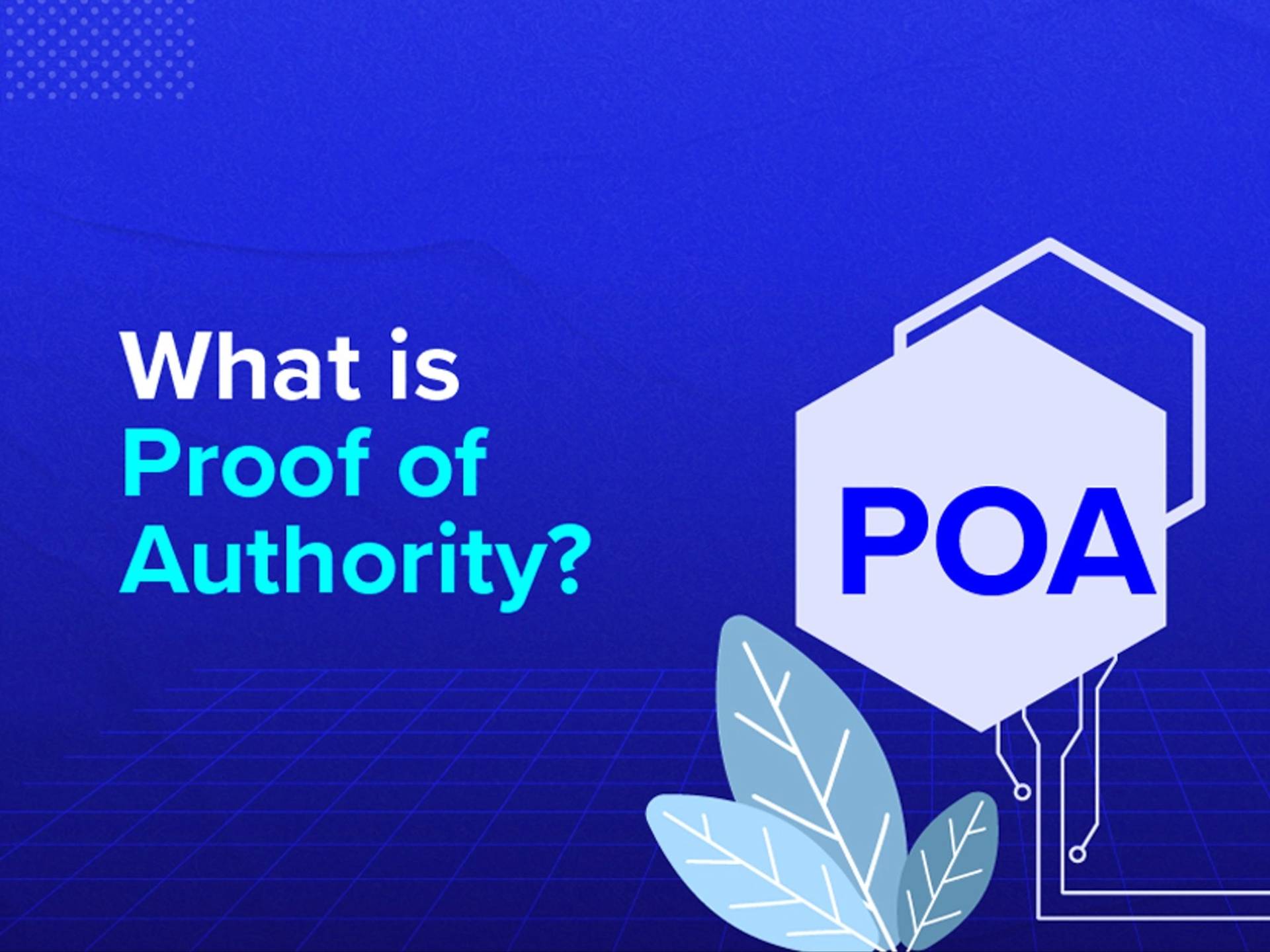订阅 wiki
Share wiki
Bookmark
Proof of Authority (PoA)
0%
Proof of Authority (PoA)
权限证明 (PoA) 是一种共识系统,它只允许授权实体验证区块链网络中的交易。PoA 是一种替代的共识机制,它依赖于已知且信誉良好的验证者来生成区块,从而为网络提供计算能力。它使用拜占庭容错 (BFT)算法,以身份作为权益,从而实现相对更快的交易。[1][7] $$widget0 [YOUTUBE@VID](rjsaa0tJ8Cw$$
概述
权限证明 (PoA) 是一种共识方法,其中一组验证者已被选为权威。他们的任务是检查和验证所有新添加的身份,验证交易和区块以添加到网络中。为了确保网络中的效率和安全性,验证者组通常保持较小(~25 个或更少)。[2]
$$widget0 [YOUTUBE@VID](uLPjWeAZ47g$$ 在权限证明中,机器通过严格的审查流程获得生成新区块的权利,这将在下一节中详细讨论。因此,值得信赖的验证机器可以保护 PoA 区块链。这些系统版主是预先批准的参与者,他们检查区块和交易。[1]
权限证明 (PoA) 是权益证明 (PoS)的增强版本,其中验证者的身份被用作网络中的权益。[2]
节点需要完成一个强制性流程来验证自己的身份,才能获得生成新区块的权利。验证者需要使用政府颁发的文件在公共公证数据库中注册自己,并使用与他们在平台上相同的身份。因此,区块和交易由参与者验证,这些参与者的身份已经过验证,并充当系统的权威。[2]
由于权力掌握在有限数量的用户手中,因此 PoA 共识可以被采纳为私有网络的解决方案,而不是公共区块链。
历史
PoA 由一群开发者于 2017 年 3 月提出(由 Gavin Wood 创造),作为一种基于以太坊协议的区块链。它的开发理念是解决以太坊 Ropsten 测试网络上的垃圾邮件攻击问题。新网络被命名为 Kovan,这是所有以太坊用户今天使用的主要测试网络。
PoA 与其他算法的比较
PoA 是区块链领域中众多共识算法之一,它与 PoW 和 PoS 等其他流行算法形成对比。PoW 是原始的共识算法,需要矿工解决复杂的数学问题才能创建和验证区块。它安全且去中心化,但速度慢、成本高且浪费。PoS 是一种替代的共识算法,它要求质押者锁定代币或硬币才能参与网络。它比 PoW 更快、更便宜、更环保,但安全性较低,更容易中心化。燃烧证明 (PoB) 是一种混合共识算法,它结合了 PoW 和 PoS 来平衡它们的权衡。它比 PoS 更安全和去中心化,但比 PoA 更复杂和效率更低。[6]
权限证明的工作原理
预先批准的验证者使用软件将交易组织成区块。该过程是自动化的,因此验证者无需 постоянно 监控他们的计算机。然而,这意味着验证者必须保持他们的计算机处于良好的工作状态。
信誉机制的本质在于对验证者身份的信任。这是一个复杂的过程,以确保淘汰弱势候选人。这保证了所有验证者都遵循相同的程序,从而确保系统的完整性和可靠性。
由于 PoA 算法而获得成为验证者权利的用户有动力保持其评级高。验证者有动力维护稳定的交易流程,以避免损害其声誉,这与其现实生活中的身份相关联。因此,大多数用户都重视他们来之不易的验证者角色。[1]
建立权威
建立验证者必须满足的三个主要条件是:[5]
- 身份必须在链上进行正式验证,并且可以在公开可用的域中交叉检查信息。
- 资格必须难以获得,以使验证区块的权利得到赚取和重视。(示例:潜在的验证者需要获得公共公证人执照)
- 建立权威的检查和程序必须完全统一。
优点
· 高交易率。 · 不需要高性能硬件。 · 与 PoW 区块链相比,PoA 网络具有很强的可扩展性。 · 耗电量更少。 · 低交易费用。 · 授权网络节点以固定时间间隔顺序生成区块。这提高了交易有效性速度。 · 无需通信即可在节点之间达成共识。 · 网络运行独立于可用真实节点的数量。 · 节点成为锻造者的机会取决于其权益和总体持有量。
缺点
· 基于网络缺乏去中心化。 · 验证者的身份在网络中可见。 · 不保证抗审查性。
用例
发现错误了吗?
